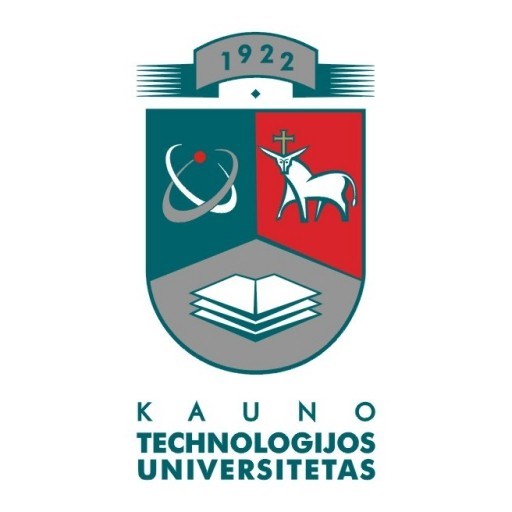Photos of university / #edinburghuniversity
The Master of Laws (LLM) in Information Technology Law at the University of Edinburgh is a rigorous postgraduate programme designed to provide students with an in-depth understanding of the legal issues surrounding information technology, digital communications, and cyber law. This programme is ideal for legal professionals, ICT specialists, policymakers, and anyone interested in the complex intersection of law and technology. Throughout the course, students explore key themes such as data protection, privacy law, intellectual property rights in the digital environment, cyber security, e-commerce, and regulatory challenges in the digital age. The programme offers a comprehensive curriculum that combines theoretical legal principles with practical applications, enabling students to critically analyze current legal frameworks and consider future developments in the field of IT law.
Students will engage with a variety of modules taught by leading academics and practitioners in the field, gaining insights into how laws are evolving to address issues like cybercrime, digital rights management, and internet governance. The programme emphasizes critical thinking and analytical skills, encouraging students to evaluate legal principles in real-world scenarios. Moreover, students will have opportunities to undertake research projects that deepen their understanding of specific issues in information technology law, fostering skills essential for academic, policy-making, or legal practice careers.
The LLM in Information Technology Law at Edinburgh is delivered through a combination of lectures, seminars, workshops, and individual research, with the flexibility to tailor the programme to individual interests and career goals. Students benefit from the university’s vibrant legal community and access to extensive resources, including online databases, law libraries, and digital learning tools. The programme also provides networking opportunities with industry professionals, academics, and alumni working at the forefront of legal issues in technology.
Graduates of this programme will be well-equipped to address legal challenges in the technology sector, influence policy development, or pursue further research in the field. The programme aims to produce graduates who are not only knowledgeable about current laws but also capable of contributing to the development of legal frameworks that support innovation and safeguard rights in the rapidly evolving digital landscape. With its strong academic foundation and practical perspective, the LLM in Information Technology Law positions students for successful careers in legal practice, consultancy, academia, or policy-making related to the intersection of law and information technology.
The LLM in Information Technology Law at the University of Edinburgh offers a comprehensive and interdisciplinary curriculum designed to equip students with a deep understanding of the legal issues surrounding information technology, digital innovation, and cyberspace. This program explores the evolving legal landscape shaped by advancements in technology, including data protection, intellectual property rights, cybersecurity, and internet regulation. Students will gain critical insights into how law intersects with technology industries and digital society, enabling them to navigate complex legal challenges in the digital age.
Throughout the course, students will study core topics such as the legal frameworks governing data privacy and protection, the rules surrounding online contracts and e-commerce, and the legal implications of emerging technologies like artificial intelligence and blockchain. They will also examine issues related to cybercrime, digital evidence, and the regulation of online content. Emphasizing a practical approach, the program includes case studies, legal analysis, and opportunities for research, encouraging students to develop skills in legal reasoning, policy analysis, and opinion writing.
The program is suitable for students with backgrounds in law, technology, business, or related areas who seek to specialize in the legal aspects of information technology. Students will have access to world-class faculty members who are experts in cyber law, intellectual property law, and digital policy. The course structure combines taught modules, seminars, and independent research, culminating in a dissertation that allows students to explore a specific area within IT law in depth.
Beyond academic excellence, the University of Edinburgh provides opportunities for practical engagement through internships, guest lectures, and conferences, creating a vibrant ecosystem for learning and professional development in the field of Information Technology Law. Graduates will be well-prepared for careers in legal practice, policy development, academia, or industry roles that require specialized knowledge of IT-related legal issues. Join the LLM in Information Technology Law at the University of Edinburgh to develop expertise at the intersection of law, technology, and society, and to contribute to shaping the future legal landscape of the digital world.
The MSc in Information Technology Law at The University of Edinburgh requires applicants to hold a good honours degree or equivalent in law, information technology, computer science, or a related discipline. Candidates with relevant professional experience may also be considered. The program emphasizes a comprehensive understanding of the legal issues associated with information technology, including data protection, intellectual property, cyber security, and digital rights. Core modules cover foundational topics such as the legal framework governing information technology, the regulation of electronic commerce, and the ethical considerations in technology use. Students are expected to undertake a combination of lectures, seminars, and independent research to develop analytical skills and practical insights into legal challenges within the digital environment. Assessment methods include written examinations, coursework, presentations, and a dissertation project, which provides an opportunity for in-depth exploration of a chosen area within IT law. The program encourages multidisciplinary perspectives, integrating legal studies with technology principles to prepare graduates for careers in legal consultancy, policy making, or cybersecurity. Entry requirements also include proficiency in English, demonstrated through IELTS or equivalent scores, ensuring students can effectively engage with complex legal texts and participate in academic discussions. The program typically lasts one year for full-time students, with part-time options available. Applicants should submit their applications through the university’s online platform, including academic transcripts, references, and a personal statement outlining their interests and career objectives related to IT law. The program’s teaching faculty comprises lawyers, technologists, and scholars actively engaged in research and professional practice, offering students valuable insights into current issues and developments in the field. Overall, this program aims to equip students with the theoretical knowledge and practical skills necessary to navigate the rapidly evolving landscape of information technology and law.
The University of Edinburgh offers various financing options to support students enrolled in its degree programmes, including those in the field of Information Technology Law. Tuition fees for the MSc in Information Technology Law can vary depending on the student's domicile status—home, EU, or international students. Currently, for UK and EU students, tuition fees are approximately £12,700 per year, whereas for international students, fees are around £24,600 per year. These figures are subject to annual review and should be confirmed through the university's official website for the most accurate and current information.
Students have access to a range of funding opportunities, including scholarships, bursaries, and grants. The university offers several merit-based scholarships specifically aimed at postgraduate students, which can substantially reduce the financial burden. For example, the Edinburgh Global Master's Scholarships provide partial fee waivers and are highly competitive. There are also country-specific scholarships available for students from certain regions, supporting diversity and internationalization efforts. Additionally, students can explore external funding sources such as government loans, grants, and sponsorships from private organizations and industry partners.
The university has dedicated financial aid advisors who assist prospective and current students with application procedures, eligibility criteria, and advice on combining multiple funding sources. The university also promotes part-time work opportunities and paid internships, which help students finance their studies while gaining practical experience. International students are advised to consider the cost of living in Edinburgh, which includes accommodation, transportation, insurance, and daily expenses. The university provides estimates for living costs, and students can plan their budgets accordingly.
Furthermore, the university participates in national loan schemes for eligible students and offers flexible payment plans where students can pay tuition fees in installments across the academic year. Students are encouraged to start the financial planning process early to ensure they meet all deadlines and maximize their funding potential. Detailed information about specific scholarships, eligibility criteria, application deadlines, and support services is available on the university's official financial aid and funding webpage. Overall, the University of Edinburgh is committed to helping students find the necessary financial resources to pursue their studies in Information Technology Law and other programmes.
The MSc in Information Technology Law at the University of Edinburgh is a specialized postgraduate program designed to equip students with comprehensive knowledge of legal and technological issues relating to information technology. This program offers a multidisciplinary approach, combining insights from law, computer science, and policy to address the rapidly evolving challenges associated with digital environments, data protection, privacy rights, cybercrime, intellectual property, and the regulation of emerging technologies. Students will explore foundational legal frameworks such as intellectual property law, data protection regulations including GDPR, and legal responses to cyber threats and cybercrime. The curriculum is structured to provide both theoretical understanding and practical skills, with modules focusing on legal aspects of emerging technological innovations, cybersecurity, e-commerce, and digital rights management.
The program is suitable for graduates with backgrounds in law, computer science, or related fields who want to specialize in law and policy related to digital technology. Taught by experts in the fields of law, computer science, and policy, students will benefit from the university’s strong research environment and links with industry, government, and the legal sector. The program emphasizes research skills, legal analysis, and understanding of technical issues, preparing graduates for careers in legal practice, policy advisory roles, regulatory agencies, or further academic research.
The MSc typically involves a combination of taught modules, seminars, and a dissertation project that allows students to undertake in-depth research on a topic of their choice within the scope of IT law. Students gain the ability to critically evaluate legal challenges posed by new and emerging technologies and develop practical solutions to complex legal and policy problems. The program also encourages engagement with current debates about digital rights, privacy, and information security, equipping graduates with the critical thinking skills needed to influence policy and legal frameworks.
Admission requirements usually include a good bachelor’s degree in law, computer science, or related disciplines, and proficiency in English. The program is designed to be flexible, with options for full-time study over one year or part-time study extending over two years, accommodating working professionals. By the end of the program, graduates will have a robust understanding of the legal issues associated with information technology and the skills necessary to apply this knowledge in professional contexts. The University of Edinburgh’s strong reputation in law and technology makes this program a compelling choice for those seeking to specialize in IT law with an international perspective.


